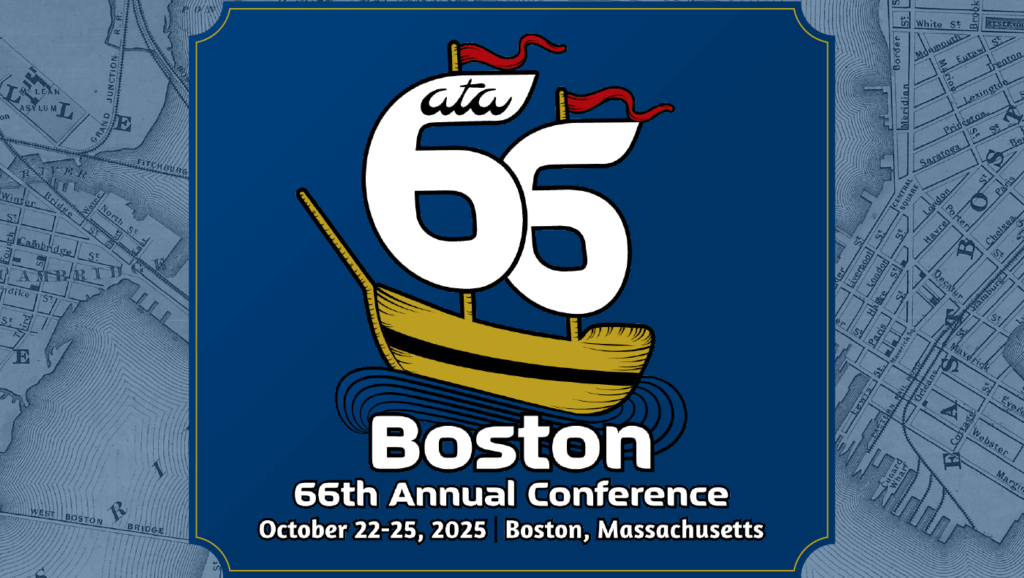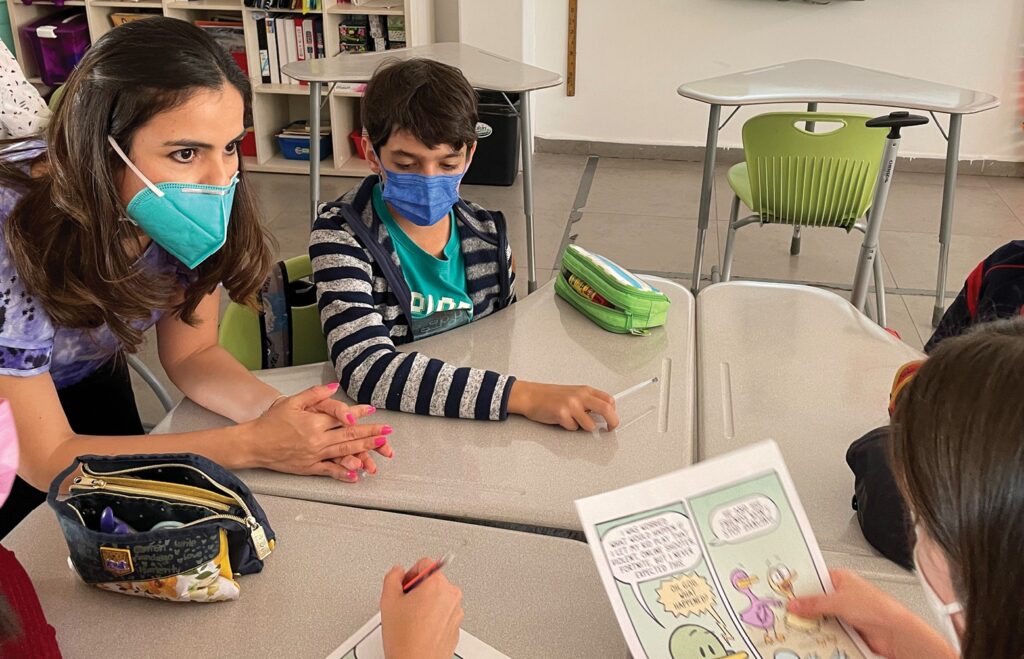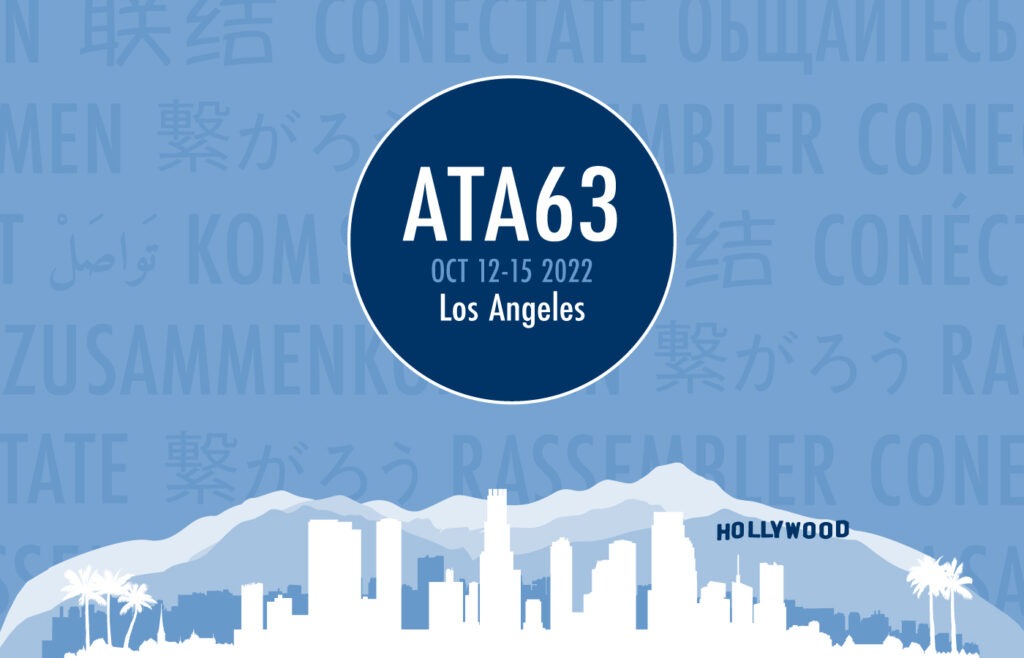ATA’s 66th Annual Conference to Tackle AI’s Impact on Translators and Interpreters
With today’s amazing advancements in AI, delivering your message could be as simple as using the translation app on your phone. But how can…
Read MoreThere’s Still Time to Register for the American Translators Association’s 66th Annual Conference in Boston!
Come to Boston and celebrate with over 1,000 translators and interpreters from over 60 countries who love what they do… just like you! The…
Read MoreGuide to Starting Out as an Interpreter
Interpreting is an endeavor that bridges people and cultures. It’s a very rewarding profession that allows you to connect people through the spoken word.…
Read MoreTeaching Translation in the AI Era: Insights from a Professional Translator
Teaching translation in the AI era is deemed challenging, but it also opens exciting possibilities. Tools like ChatGPT and DeepL may disrupt traditional practices, yet they can serve as powerful catalysts for rethinking and revitalizing translation pedagogy. Rather than resisting these technologies, educators can harness them to promote innovative forms of learning and skill development. Here are several approaches and practical strategies that translation educators can implement in the AI-driven era.
Read MoreWhy AI Can’t Teach Language: The Difference between a Model and True Communication
Language is inherently embodied, requiring human presence to convey meaning. True language emerges from the physical and relational presence of the speaker. AI models may mimic linguistic patterns but lack the living presence that gives language its depth and nourishment. True communication is not just words but an embodied encounter—a mystery AI cannot replicate.
Read MoreBridging the Gap: How ALC Bridge Is Connecting Academia and the Language Services Industry to Ensure a Sustainable Talent Pipeline
With demand for translation, interpreting, localization, captioning, dubbing, consulting, and other specialized services skyrocketing, the need for skilled professionals has never been greater. However, despite the growth in demand, the pool of adequately trained talent is falling extremely short. Here’s a brief overview of how the Association of Language Companies (ALC) Bridge initiative engages with academia to close the talent gap in the language services industry.
Read MoreE104: Inside Specialization – Corporate and Internal Communications
In this episode of the ATA Podcast, we hear from Marita Propato, who has a career that spans decades working with clients ranging from large tech firms to the International Olympic Committee. Listen in and take notes as she advises how to navigate translating corporate and internal communications!
Read MoreLanguage Frontlines: The Urgent Mission to Train Indigenous Interpreters in the U.S.
The ongoing mission to train more interpreters is vital for upholding justice and equality within the legal system.
Read MoreProfile of ATA’s 2022 School Outreach Contest Winner: Aída Carrazco
When Aída Carrazco, the 2022 ATA School Outreach Contest winner, gave her presentation to her son’s fifth grade class in March 2022, kids were just going back to school after 16 months of studying from home. That meant she faced a unique challenge: students weren’t used to being in the classroom. Aída was determined to make sure she kept their attention by making her presentation extra fun!
Read MoreE76: ATA’s 63rd Annual Conference Preview
Over 160 educational sessions, 15 Advanced Skills and Training Day (AST) courses, 30 subject- and language-specific tracks, industry leaders from around the world, and 1,500 translators, interpreters, students, educators, project managers, and language company owners—what more can you say about ATA’s 63rd Annual Conference?
Read MoreHard of Hearing Children and Dual Language Learning: Guidelines for Interpreters
Interpreters play a key role for hard of hearing future multilinguals as they receive services from audiologists and speech-language pathologists. As interpreters, we bring our creativity into the session to find solutions, working as a team with the provider to ensure the best possible intervention for the patient. How can interpreters complement and aid other professionals in their tasks? How do we help families along this journey without making it our own? Here’s some advice that stems from my experience and that of other professionals in the field.
Read MoreThe Orange County Department of Education Multilingual Consortium: A Clearinghouse for Educational Interpreters
California’s Orange County Department of Education has spearheaded efforts to provide continuous professional learning opportunities for bilingual staff in educational settings nationwide. Learn how a robust language services program strategically addressed the challenges and effectively capitalized on the opportunities presented by the pandemic.
Read More










